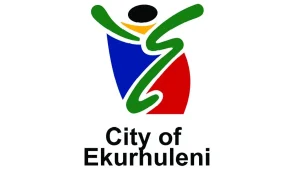For many aspiring South African teachers, the Funza Lushaka Bursary Programme offers critical financial support. Funded by the Department of Basic Education (DBE), the bursary covers tuition, accommodation, meals, books, and a living stipend. However, some students find themselves in a frustrating position—their bursary is approved, but the payment hasn’t come through.
If you’re in this situation, you’re not alone. Payment delays can happen due to administrative processes or institutional backlogs. Here is a detailed guide on what to do next if your Funza Lushaka bursary has been approved but payment has not yet been made.
1. Contact Your Institution’s Financial Aid Office
Your first step should be to reach out to your university or college’s Financial Aid Office (FAO) or Student Funding Office. These departments manage the relationship between the bursary programme and your institution and are responsible for processing payments to students.
Questions to ask:
Has the institution received the bursary funds from the DBE?
Are there any outstanding forms or documents you need to submit?
When are the next payment dates scheduled?
Action tip: Visit the office in person if possible, or email them with your full name, student number, and a clear, concise message outlining your concern.
Note: Each university or TVET college may have its own process and timeline for fund disbursement.
2. Check for Communication from the Bursary Office or Institution
Sometimes, delays are communicated through institutional channels, and students miss these updates.
Where to check:
Your student email (including your spam/junk folder)
Your student portal (e.g., myUnisa, myTUKS, myUKZN)
WhatsApp groups or faculty group chats
Campus notice boards
Financial Aid Office or SRC social media pages
Missing a simple request for documentation or not acknowledging a payment delay notice could prolong the issue.
Action tip: Make a habit of checking your student email and portal at least once a week.
3. Understand the Funza Lushaka Payment Schedule
Unlike NSFAS, Funza Lushaka payments are not made monthly. This often confuses first-time recipients.
Payment Structure:
First disbursement: Typically between June and July
Second disbursement: Around September
This schedule is intentional and reflects how funds are released by the Department of Basic Education.
What the bursary typically covers:
Full tuition fees (paid directly to the institution)
Accommodation and meals (either to institution or landlord)
Books and learning materials
A living allowance (paid to the student)
If you were expecting monthly payments like NSFAS, you’ll need to adjust your expectations and plan around these lump sums.
Action tip: Log in to your profile at www.funzalushaka.doe.gov.za to check the status of your bursary.
4. Monitor and Manage Your Budget Wisely
Once the payment is made, it can be tempting to spend freely, especially after waiting for months. However, overspending may lead to financial strain later in the year.
Budgeting Tips:
Prioritise essential expenses like rent, food, transport, and study materials.
Create a monthly spending plan based on your total received amount.
Avoid luxury purchases or unnecessary expenses.
Keep receipts and track your spending regularly.
Remember, the bursary is meant to support your education—not to fund an extravagant lifestyle.
Action tip: Use a budgeting app or spreadsheet to manage your bursary funds over several months.
5. Seek Temporary Support if Needed
If the delay is putting you in a difficult financial position, consider seeking short-term assistance.
Options include:
Asking for help from family or trusted friends
Contacting the Student Representative Council (SRC) for emergency food parcels or hardship funding
Applying for short-term institutional grants (some universities offer these on request)
Visiting the university’s student support or wellness office for assistance
Institutions often have support systems in place for students who are struggling, particularly at the beginning of the year.
Action tip: Request a meeting with a student support officer if your financial challenges are affecting your studies or mental health.
6. Follow Up Regularly and Stay Proactive
Once you’ve lodged your query, don’t assume it will be resolved automatically. Stay in regular contact with your institution’s bursary office and document all correspondence.
Follow-up tips:
Follow up every two weeks until you receive confirmation of your payment
Keep copies of all emails, reference numbers, and names of officials you’ve spoken to
If necessary, escalate your query to the institutional bursary coordinator or financial aid manager
Action tip: If your issue remains unresolved for an extended period, you can contact the national Funza Lushaka office at:
Email: inquiries@funzalushaka.doe.gov.za
Common Reasons for Payment Delays
Delays can be caused by a number of administrative issues. Understanding these helps prevent future problems.
Common causes:
Late or incomplete registration at your university
Missing or unsigned bursary contract documents
Incorrect or outdated bank account information
Delayed fund transfers from the DBE to the university
Institutional backlog due to high student volumes
Action tip: Ensure that all your documents are submitted early in the academic year and that your student profile is up to date.
Check also: Funza Lushaka Bursary Allowances 2025: A Comprehensive Breakdown of Payments
If your Funza Lushaka bursary has been approved but not paid, do not panic. Delays are not unusual and are often resolved within a few weeks once all administrative steps are completed. By following the correct channels and remaining proactive, you can minimise disruption and access your funding without unnecessary stress.
Key Takeaways:
Contact your Financial Aid Office immediately and check your institution’s communication platforms.
Understand that Funza Lushaka pays in lump sums—typically mid-year and later in the second semester.
Budget wisely once your funds are received to avoid financial issues.
If you are in urgent need, don’t hesitate to ask for help from available student support services.
Keep following up until the issue is resolved.
This bursary is an incredible opportunity that enables thousands of South Africans to pursue their passion for teaching. Make the most of it by staying informed, prepared, and financially responsible.










